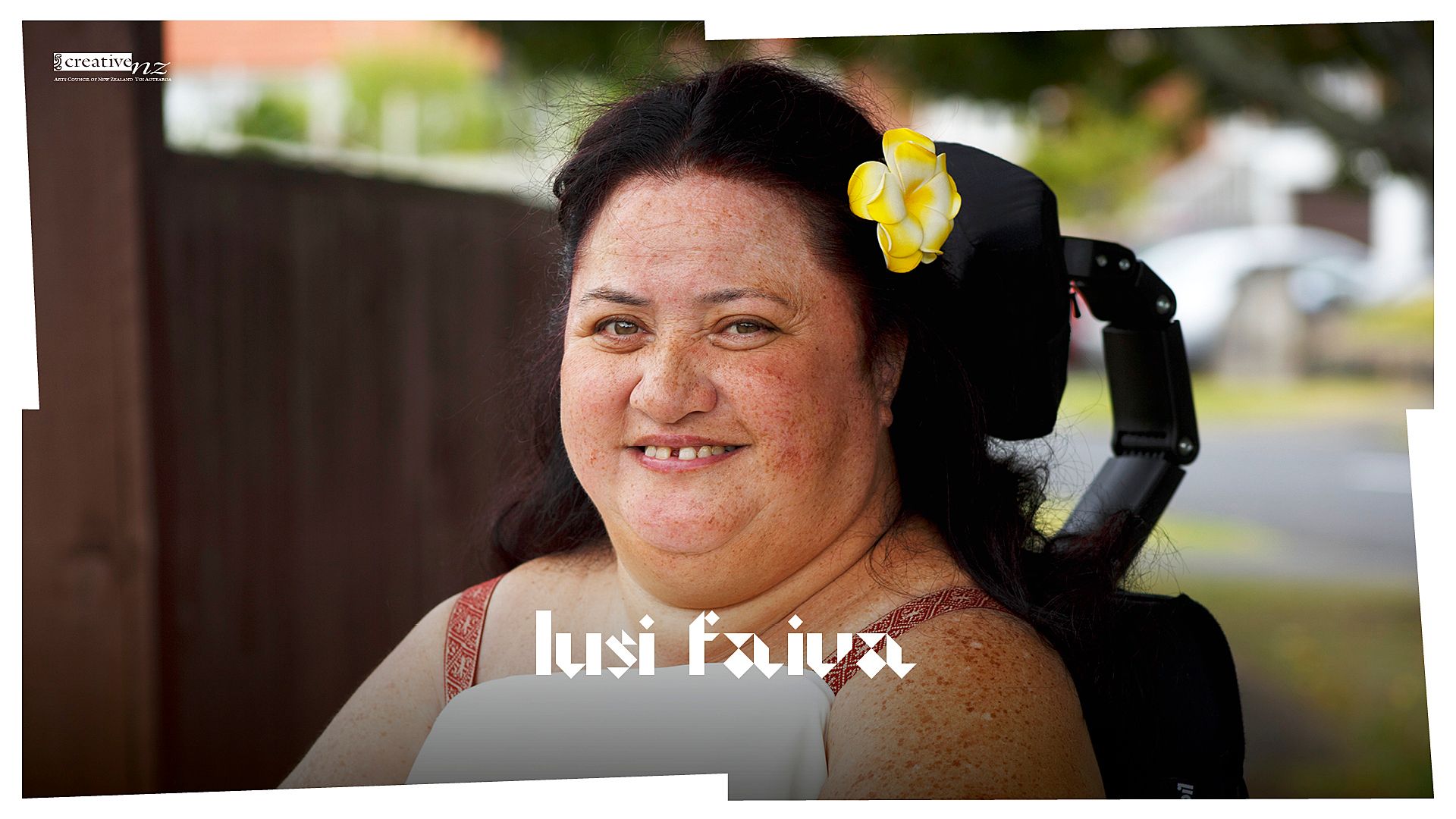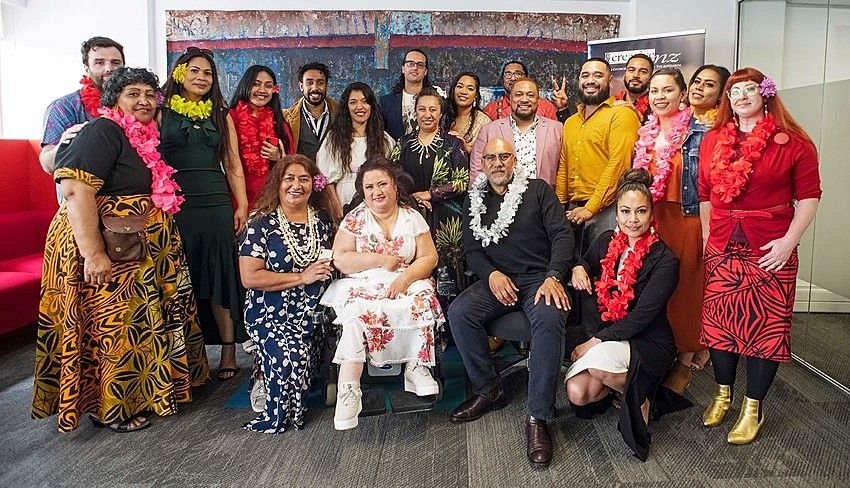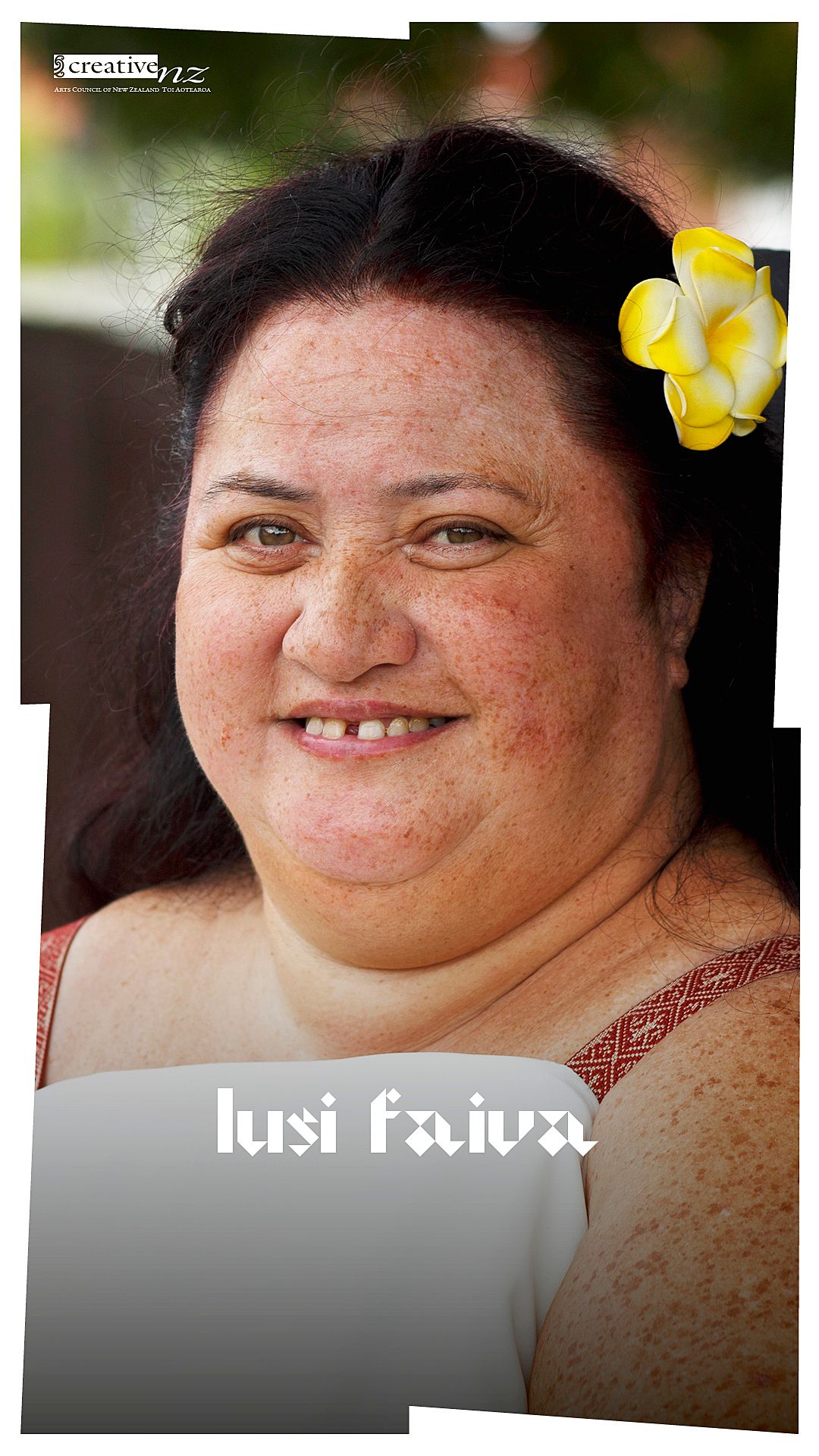Denied Acceptance
Award-winning dancer and founding member of inclusive professional dance company Touch Compass, Lusi Faiva shares her story about the power of reconnection through dance.
We’re collaborating with Creative New Zealand to bring you the groundbreaking Pacific Arts Legacy Project. Curated by Lana Lopesi as project Editor-in-Chief, it’s a foundational history of Pacific arts in Aotearoa as told from the perspective of the artists who were there.
My parents got married straight after they migrated from Sāmoa to New Zealand in 1967. They settled in Wellington when Mum was only 20 years old, then she got pregnant with me. The following year, I was born in Lower Hutt. Still, my mum had to go to Upper Hutt hospital for a rest. Then I recall her first mention of her husband at the time, she found out that he’d had an affair with another woman and she asked him to leave immediately.
Mum was heavily pregnant with my brother Rodney at that time. After arguing with her husband, Mum hurt her wrist badly when she smashed it into a glass door. She damaged a nerve in the back of her hand, but she got it surgically repaired. She survived the heartbreak of her marriage, and during her recovery, she noticed I was not sitting up at all or making any noises, so she decided to take me to the doctor, and they diagnosed me with cerebral palsy.
I was only two years old, but my mum had no choice but to have me institutionalised. There were no other support services back in the late 1960s and 1970s. The Kimberly Home was the name of the institution in Levin, an hour from Wellington. The institution was founded in the early 1950s and was the main place where people with various disabilities and mental health issues went.
Mum was in a physically abusive relationship with some guy that she spent years with. That’s how my nightmares started.
I didn’t see Mum for five years while I was at Kimberly Home, until one day when I was seven, when she came to take me home to Petone to live with her. I burst into tears because she was a stranger to me. Mum was in a physically abusive relationship with some guy that she spent years with. That’s how my nightmares started. Filled with the violence of beatings he caused on my mum and one day Mum had enough, so she escaped from the dysfunctional family home and fled to the women’s refuge in the middle of the night with us kids. She had to go up to Auckland with Rodney and come back to get me from the Wellington hospital after I had had the operations on my legs. That’s the last time I would go back to Wellington for many years.
As I lay on the hospital bed, I saw a figure of a man in the doorway of the ward, I always wanted to believe that it was my father, but he was gone, he had simply vanished. I never saw him again.
I had a little do with Mum’s side of the family because of my disability; they felt awkward. I didn’t understand why at the time. It caused feuds between Mum and her family members, and that was hard on her because they chose not to know me as a person with a disability. Our relationship as a mother and daughter became strained. I felt resentment towards her. It impacted my behaviour, and one time I ran away from home and she brought me back and gave me big hiding. I was in my teens at that time, acting out to figure out the real person I was becoming. To this day, I am still discovering new things about myself every day.
Knowing my Sāmoan heritage is something that I can embrace, with a good understanding of the importance of being a Pacific woman with a disability.
I have been denied this for years now from my aiga, but it is reality, and I’m happily sharing it with the people in the Pacific community. Being a performing artist has brought me a successful career for over 24 years with Touch Compass. I am so grateful for that each day.
As for Mum, the long journey of her life was challenging. She had to carry on keeping her distance and making the right choices, so that she could come to a place where she could live happily. It is her religious beliefs that have given her comfort over the years, and she returned home to her village of Patamea, Savai‘i in 2017, almost 60 years after she arrived here. She went with my younger sister and said, “I loved being back home after a long time.” Sadly now, Mum is in the first stage of dementia. Fortunately, it hasn’t stopped her being active, but I know she’ll get worse with her memory loss.
Taupou is a new siva performance which has lots of energy to bring to life. The performance involves artists from a range of different social and ethnic backgrounds to share the diversity of their artistic talents in dance. Also, it’s about reconnecting with Mum. I believe that when we were living together with Mum’s other relatives in South Auckland, who accepted us all, it was the only time and place she felt herself at last!
The Creative New Zealand Pasifika Arts Awards winners 2020 where Lusi and Pelenakeke Brown both won the Pacific Toa Artist Award.
The original idea was from a conversation with Rose Kirkup, co-founder of Everybody Cool Lives Here, and Nic Lane, the founder and producer on this project, when I attended the 2019 Cuba Dupa Festival two years ago. That’s how the dream came true to plan for the performance last year. With the Covid pandemic, we had to put it on hold till this year. I’m so excited about working with them and performing on the streets of Wellington. It is the biggest deal for me to celebrate being an independent artist in my own right.
To my mum, I love you always. My special thanks to Nic and Rose for their guidance and support.
*
This piece is published in collaboration with Creative New Zealand as part of the Pacific Arts Legacy Project, an initiative under Creative New Zealand’s Pacific Arts Strategy. Lana Lopesi is Editor-in-Chief of the project.
Series design by Shaun Naufahu, Alt group.
Header photo by Pati Solomona Tyrell.
Domestic abuse helpline Shine: 0508 744 633



